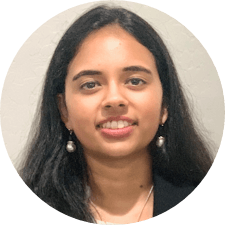As a result of the partnership between a college, a federal bureau and a copper-mining company, the Academy for Women Entrepreneurs (AWE) launched in 2019 to provide women around the world the opportunity to start their own small businesses and enhance women's economic empowerment.
AWE, founded by ASU's Thunderbird School of Global Management, the U.S. Department of State's Bureau of Educational and Cultural Affairs and Freeport-McMoRan Foundation, would grow to become a program hundreds could use to help launch their own businesses as the COVID-19 pandemic changed the global economy.
Initially, AWE was in 26 countries, and now has expanded into 53. For 2021, the team is hoping it will be implemented in 75-80 countries in total. Currently, there are over 5,000 women around the world who are enrolled in the program.
The program has helped women learn about how they can launch their businesses after some lost their jobs due to the COVID-19 pandemic.
Cindy Yeager, a senior director of Latin America at Thunderbird School of Global Management, said the number of women who signed up to be part of the program increased 50% in 2020.
“We had a large jump in enrollment in participation ... that doubled the footprint of the program and reach as well," Yeager said.
Aleisha Woodward, acting principal deputy assistant secretary in the Bureau of Educational and Cultural Affairs, said COVID-19 has allowed women to adapt their business to supply needed services for the community during the pandemic.
“I met a woman who had a business sewing uniforms for various businesses,” Woodward said. “In response to the pandemic, she has transitioned in creating a whole lot of PPE.”
ASU’s role in the program is supplying the digital learning platform, DreamBuilder, which which was funded by Freeport McMoRan. Thunderbird for Good, an ASU program designed to empower nontraditional students in developing countries, also works to implement DreamBuilder.
Available in Spanish and English, DreamBuilder teaches women how to turn their idea into a reality by learning how to create a business plan and how to price their products. Yeager said it allows women from different countries to interact in a virtual forum.
“DreamBuilder serves as the foundation for the program,” Yeager said. “So everyone has training but then it builds on that and it creates other access to resources, networking and hopefully financing for women that are starting a small business.”
Woodward said the purpose of DreamBuilder is to educate women on how to create a strong business.
“The end result of going through DreamBuilder, is the entrepreneur has a business plan,” Woodward said.
The program had chunks of in-person learning, such as learning the DreamBuilder modules together and holding discussions about them. However, that was moved to a digital format during the pandemic.
Woodward said they wanted to continue doing work and sessions for women to still make connections and build their businesses, especially for women who lost their full-time jobs.
“Now their only source of income was this side hustle that they were trying to make into a real business,” Woodward said.
Kellie Kreiser, executive director for Thunderbird for Good, said she is grateful for the partnership with the U.S. State Department and the school because it has given them a platform and introduced them to a larger audience.
Kreiser said they work with the embassy of each country they work with and other local organizations to tailor the program specific to that country.
Yeager said several types of businesses have come out from the program, such as fitness and handicraft businesses.
With the program being open to women of all ages and backgrounds, Yeager said the program has been continuously expanding to different populations.
“We have some partners who are working with youth and high school-aged kids that are thinking that they would like to start a business,” Yeager said, “Then, we have women that are older, like in their 70s.”
Kreiser said the program helped fulfill a need for women during the pandemic, providing them a new opportunity to make an income when other jobs may have been lost.
“It was the right program for the right time,” Kreiser said.
Corrections and clarifications: A previous version of this article incorrectly stated the names for the Academy for Women Entrepreneurs and the Bureau of Educational and Cultural Affairs. The article was updated Feb. 8, 2021, at 8:30 p.m. to reflect the change. The article was also updated to clarify how many members are enrolled in the program.
Reach the reporter at anatar12@asu.edu or follow @AnushaNat1 on Twitter.
Like The State Press on Facebook and follow @statepress on Twitter.
Continue supporting student journalism and donate to The State Press today.





